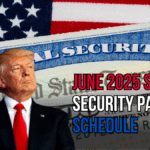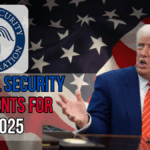Raising a young child in today’s economy isn’t easy — especially for families already stretched thin by rising rents, child care costs, and basic living expenses. In Sacramento County, local leaders are stepping in with a bold new solution: a guaranteed income pilot that offers $725 per month to help parents of young children gain stability and peace of mind.

Launching in June 2025, the Family First Economic Support Pilot (FFESP) aims to support 200 low-income families by providing direct monthly payments for one full year — no strings attached. If you live in one of six targeted ZIP codes and have a child aged 0–5, this could be a lifeline for your household.
This comprehensive guide breaks down everything you need to know about FFESP: who qualifies, how the program works, how families are selected, and smart ways to make the most of the funds. Whether you’re a parent hoping to apply or a community advocate supporting others, this resource is here to help you navigate the opportunity.
Summary Table: June $725 Stimulus Check
| Feature | Details |
|---|---|
| Program Name | Family First Economic Support Pilot (FFESP) |
| Monthly Payment | $725 |
| Total Value | $8,700 over 12 months |
| Start Date | June 15, 2025 |
| Application Deadline | April 27, 2025 |
| Eligibility | – Live in select Sacramento ZIP codes |
What Is the Family First Economic Support Pilot (FFESP)?
Sacramento County’s FFESP is a guaranteed income program offering $725 per month to 200 low-income families for 12 months, starting in June 2025. This pilot is part of a broader effort to test the impact of unconditional cash support on child development, household stability, and financial independence.
Unlike traditional welfare programs, FFESP imposes no restrictions on how the money can be spent. The aim is to reduce economic stress, particularly for families with children aged 0–5 — a period critical to lifelong development.
Why Focus on Families with Young Children?
Child development experts agree: the early years (0–5) are foundational. Research from organizations like Zero to Three shows that economic hardship during this period can cause lasting harm to cognitive, emotional, and behavioral development.
By supporting families early, FFESP hopes to lay the groundwork for improved outcomes in school readiness, health, and long-term self-sufficiency.
Who Qualifies?
To qualify for the FFESP program, families must meet the following requirements:
1. Live in Specific Sacramento ZIP Codes
You must live in one of these six ZIP codes:
- 95815
- 95821
- 95823
- 95825
- 95828
- 95838
These neighborhoods were selected based on metrics like poverty levels, healthcare access, and educational disparities.
Note: Moving out of an eligible ZIP code during the program may disqualify you.
2. Parent or Guardian of a Child Aged 0–5
You must have at least one child between the ages of 0 and 5 who lives with you at least half the time. Legal guardians and relative caregivers also qualify.
3. Income Requirements
Your household income must be at or below 200% of the Federal Poverty Level. For 2025, that translates to:
- $39,440 for 2-person households
- $62,400 for a family of 4
- $85,360 for 6-person households
Use your 2024 tax return or most recent income statements to verify eligibility.
How the Application Process Worked
Applications were accepted from April 14 to April 27, 2025, via ffesp.org. Thousands of families applied — many from their phones during lunch breaks or with help at community centers.
After the deadline, all eligible applicants were entered into a randomized lottery. Two hundred families were selected and notified by phone and email.
Selected participants received:
- Instructions to choose their payment method
- Optional onboarding sessions with financial guidance
- Community resource recommendations
As one recipient shared: “When I got the call, I thought it was a scam. But then the email came, and I cried at my desk.”
How Payments Will Be Distributed
- Start Date: June 15, 2025
- Duration: 12 months
- Method: Direct deposit via SAFE Credit Union or prepaid Usio debit card
- Spending Restrictions: None. Funds can be used for any expenses.
What You Can Spend the $725 On
There are no restrictions on how the monthly payment can be used. That said, here are common and impactful uses:
- Rent and housing support
- Childcare and preschool tuition
- Utility bills
- Groceries, diapers, and baby supplies
- Transportation and car repairs
- Mental health and wellness services
How to Make the Most of Your $725
Smart planning can stretch this support beyond basic survival. Consider the following strategies:
1. Budget Wisely
Start with a simple monthly budget. Prioritize essentials like rent, food, and childcare. Apps like EveryDollar or Mint can help.
2. Pay Down High-Interest Debt
Even small payments toward high-interest credit or payday loans can lead to major savings.
3. Invest in Your Child
Use part of the funds for preschool, educational toys, books, or healthy meals.
4. Improve Your Own Potential
A portion of the money can go toward a course, certification, or resources for job improvement.
5. Create an Emergency Fund
Save even $25–$50 monthly. Unexpected costs — medical bills, car repairs — can become less stressful when you’re prepared.
Sample Monthly Spending Plan
| Use | Amount |
| Rent Supplement | $300 |
| Childcare/Preschool | $200 |
| Groceries | $100 |
| Savings | $75 |
| Emergency/Utilities | $50 |
Real-Life Example: Angela from 95823
Angela is a 28-year-old single mom working in a warehouse. She earns $18/hour for 30 hours a week — $2,160/month before taxes. With rent at $1,400, she often falls short.
Thanks to FFESP:
- She enrolled her son in a part-time preschool program
- Saved $100/month for emergencies
- Repaired her car to reliably get to work
“I feel like I can breathe again,” she said.
The Bigger Picture: FFESP and a National Trend
FFESP is part of a growing national movement toward guaranteed income pilots. Cities like Los Angeles, Chicago, Oakland, and Denver are running similar initiatives.
Studies from institutions like Stanford’s Center on Poverty and Inequality show that unconditional cash programs can:
- Improve employment rates
- Reduce food insecurity
- Support better maternal mental health
If successful, Sacramento’s FFESP may pave the way for larger, more permanent social safety nets.
Frequently Asked Questions (FAQs)
Q1: Do I have to report how I spend the money?
A: No. There are no restrictions or reporting requirements.
Q2: Will this affect my other benefits (CalFresh, Medi-Cal, etc.)?
A: FFESP payments are not considered income for most public benefit programs, but you should check with a caseworker for your specific situation.
Q3: What happens if I move during the year?
A: If you move out of one of the qualifying ZIP codes, you may lose eligibility.
Q4: Is there another round of applications?
A: Not yet, but Sacramento officials have said this may lead to future or expanded programs depending on outcomes.
Q5: Is there a contact number for help?
A: Visit the official site ffesp.org for updated contact details and support resources.
Final Thoughts
The Family First Economic Support Pilot represents more than financial aid — it’s a chance to reset, refocus, and rebuild. For those selected, this monthly support could be life-changing. For others, it signals that more help may be on the horizon.
If you’re one of the lucky 200, make it count. If you missed out, stay connected and keep an eye on ffesp.org. This pilot might just be the beginning.
Click here to know more



